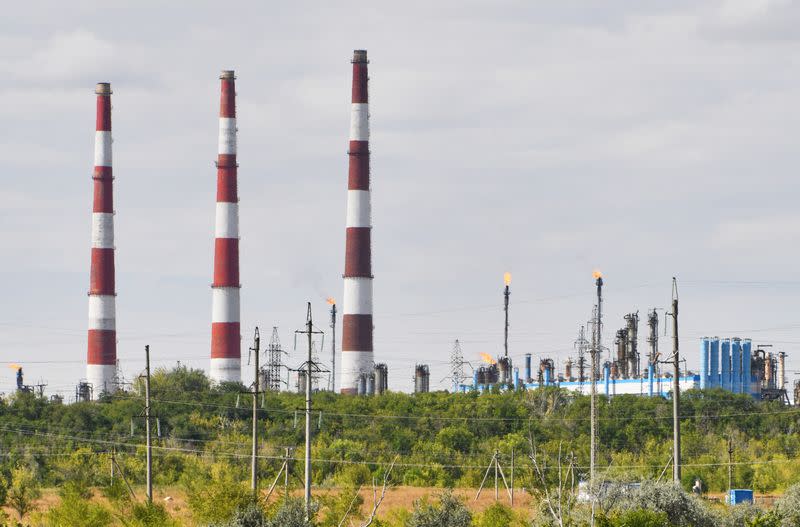Russian gas transit via Ukraine lower amid milder weather in Europe - source

By Vladimir Soldatkin
MOSCOW (Reuters) -Russian gas transit to Europe via Ukraine has been some 16% lower in the past week from previous levels amid mild weather in Europe, a source familiar with the data said on Tuesday, and as the region remains well supplied with gas from other sources.
Kremlin-controlled gas giant Gazprom has said that Russian daily gas deliveries via the Sudzha entry point through Ukraine to Europe have been at 35.5 million cubic metres (mcm) for the past five days, down from more than 40 mcm in the past few months.
Gazprom did not reply to a request for comment about why volumes have declined.
The source, speaking on condition of anonymity, said the lower volumes probably reflected record-high winter temperatures seen across much of Europe over the new year period.
Hundreds of sites have seen temperature records smashed in the past days, from Switzerland to Poland to Hungary, which registered its warmest Christmas Eve in Budapest and saw temperatures climb to 18.9 degrees Celsius (66 degrees Fahrenheit) on Jan. 1.
British and Dutch prompt wholesale gas prices mostly edged lower on Tuesday morning as continued milder weather curbed gas demand for heating and as liquefied natural gas (LNG) supply rose. [NG/EU]
Europe's gas prices are slumping as the combination of mild weather and reduced industrial consumption has produced an unusual seasonal increase in inventories which threatens to overwhelm the storage system.
"NWE (North West Europe) is generally well supplied now with storages across Europe at more than healthy levels, so makes sense to slow down the take from Russia," Refinitiv gas analyst Marina Tsygankova said.
"Our assumption is that importers from January started to take less under remaining Russian long term contracts, as after the recent collapse of European spot prices Russian contracts are not in the money in January."
CONFLICT
Russian commodity exports have become increasingly politicised amid what Moscow calls its "special military operation" in Ukraine, now in its 11th month.
Russia's gas exports to Europe via pipelines plummeted to a post-Soviet low in 2022 as its largest customer cut imports due to the conflict in Ukraine and a major pipeline was damaged by mysterious blasts.
The European Union has spoken for years about cutting its heavy reliance on Russian energy, but it only started to get serious after the Kremlin sent troops into Ukraine in February.
Gas storage operators in Germany, which used to be Gazprom's largest consumer of gas, expressed optimism on Tuesday there would be no supply problems next winter due to declining consumption and said there was no chance of shortages this winter.
Milder temperatures for the time of year across much of Europe have meant gas stock levels have remained stable, rather than being drawn down as would normally be the case during winter.
Overall, Europe's gas stores were 83% full on Jan. 8, according to the latest data from Gas Infrastructure Europe, little changed from the end of last year.
Separately, Gazprom Mezhregiongaz, a branch of Gazprom responsible for domestic gas supplies, said on Tuesday that on Jan. 8 it saw a daily record-high of gas deliveries to Russian consumers for the past three years, or 1.74 billion cubic metres, due to low temperatures across many regions.
(Reporting by Vladimir Soldatkin; additional reporting by Nina Chestney in LondonEditing by Gareth Jones and Mark Potter)

 Yahoo Finance
Yahoo Finance 